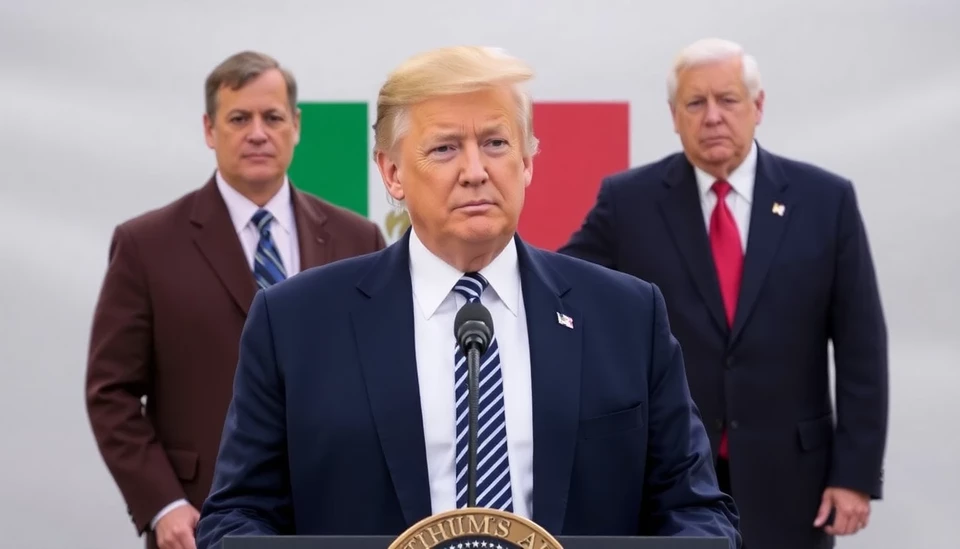
In a deviation from previous diplomatic measures, former President Donald Trump is intensifying his rhetoric surrounding tariffs against Canada, Mexico, and China, signaling a potential economic showdown that could have extensive ramifications for trade relationships across North America and beyond. This escalated stance comes as Trump continues to position himself for a possible 2024 presidential run, leveraging trade policy as a key component of his platform.
According to sources familiar with the matter, Trump is preparing to reinstate tariffs on multiple goods imported from these countries, reviving tactics reminiscent of his administration’s previous trade wars. This maneuver is both a direct response to what he perceives as unfair trading practices and a strategic move to galvanize his base ahead of the upcoming election cycle.
Details of Trump's proposed tariffs remain largely speculative but could encompass a wide range of products, including automotive goods and agricultural products. The former President has frequently criticized the U.S.-Mexico-Canada Agreement (USMCA), claiming that it has not adequately protected American jobs and has allowed foreign countries to benefit at the expense of U.S. workers.
The potential reintroduction of tariffs could lead to a retaliatory response from both Canada and Mexico, as well as strain relations with China, which is already embroiled in its own trade complexities with the United States. Canadian officials have recently expressed concern over any unilateral actions by the U.S., emphasizing the importance of abiding by international trade agreements in order to sustain mutual economic growth.
Moreover, the economic implications of such tariffs could be significant. Experts suggest that these actions may lead to increased prices for consumers, disruptions in supply chains, and heightened tensions in an already turbulent global market. Industries reliant on cross-border trade could face challenges that may affect not only their profitability but also jobs across the three countries.
This upcoming tariff confrontation underscores the interconnectedness of the North American economy and raises questions about how such policies would be influenced by the ongoing political landscape. Economists warn that Trump's aggressive trade approach risks igniting a cycle of retaliation that could ultimately have far-reaching consequences for the agricultural sector, manufacturing, and the overall stability of trade in the region.
As political analysts scrutinize Trump's renewed commitment to tariffs, they note that this could be a litmus test for his influence within the Republican Party and his ability to unify his base around a common economic agenda. The former president's past actions have demonstrated a willingness to challenge established norms, and this time may not be any different as he embarks on another journey toward the White House.
While the unfolding situation remains dynamic, it is clear that Trump's stance on tariffs will continue to be a critical issue in the months leading up to the election. Stakeholders from various sectors are urging for clarity and a reassessment of trade strategies that can spark discussions about collaboration rather than confrontation among neighboring countries.
#Trump #Tariffs #TradeWar #Canada #Mexico #China #USMCA #Economy #2024Election #TradeRelations
Author: Laura Mitchell




